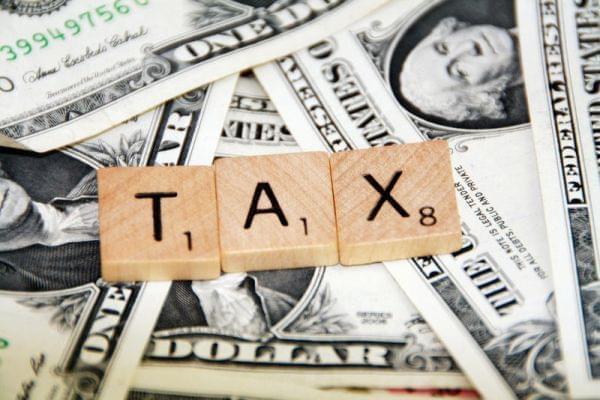Illinois Issues: Flat Vs. Graduated Income Tax

Should Illinois' current flat-tax system be changed to a graduated income tax as the state attempts to deal with its ongoing budget struggles? Two experts debate the merits of the two tax systems. 401ktaxcalculator.org
Commentary: Should Illinois' current flat-tax system be changed to a graduated income tax as the state attempts to deal with its ongoing budget struggles? Two experts debate the merits of the the two tax systems.
MIKE KLEMENS: FLAT TAX
Numerous proposals for dealing with Illinois’ fiscal problems call for abandonment of our flat-rate tax in favor of a graduated-rate income tax. While the graduated proposal may be good tax politics, when measured by the principles of sound tax policy, the flat-rate tax is the better choice. This is not an argument over the level of taxation in Illinois; it is simply an argument about the fairest and most efficient way to collect income tax.
Before we start, a few facts:
- Under the current flat-rate tax, the highest income Illinoisans pay most of the tax (properly so because they have most of the income). The top 1 percent of filers pay 24 percent of the tax: the lowest 35 percent of households pay 4 percent of the tax.
- The principle that the highest income people pay most of the tax held when the flat-rate tax was increased in 2011. The Center for Tax and Budget Accountability (CTBA) reported that with the 2015 rollback from 5 to 3.75 percent tax relief “disproportionately” went to Illinois’ wealthiest. That means when the rate was increased, the burden went “disproportionately” to Illinois’ wealthiest.
- Despite the graduated federal income tax, Billionaire Warren Buffet has famously pointed out that he pays a lower effective tax rate than does his secretary.
Flat-Rate Tax = Good Tax Policy
The principles of sound tax policy include:
Adequacy – The tax structure should raise enough revenue to fund government operations. This principle depends upon the overall level of taxation and could be met under a flat-rate or graduated system.
Stability/Predictability – Dramatic fluctuations should be avoided, so both taxpayers and governments can anticipate. The flat-rate system is more stable and predictable.
Equity/Fairness – The tax should be both fair — and perceived as fair —so that those with more income pay more tax. The fairness argument is so central to the argument for a graduated tax that proponents dubbed their proposal the Fair Tax. The perceived regressivity of Illinois’ current flat tax (It’s actually very slightly progressive.) has long been an issue. However, under either system steps could be taken to reduce taxation on low income households (e.g. larger personal exemptions for low income taxpayers). Whatever is done, fairness is in the eye of the payor and those paying significantly higher taxes won’t see fairness.
Collectibility/Transparency/Simplicity – A flat-rate tax is simpler, has lower administrative costs for government and compliance costs for taxpayers, and is easier for all to understand.
Efficiency – Taxes should not change economic behavior. A graduated tax, particularly with high marginal rates, would increase tax planning to legally minimize taxation. Some studies put the loss in the 20-30 percent range. A flat-rate tax creates no incentives to artificially lower income, so is less likely to distort economic behavior.
On all but the subjective fairness principle, the flat-rate tax is better tax policy.
Flat-Rate Tax = Bad Tax Politics
In 2016, after the personal income tax rate had rolled back to 3.75 percent, lawmakers proposed HB 689 as part of an unsuccessful effort to pass a Constitutional Amendment permitting a graduated tax. The proposed structure for married/joint filers was:
Income Tax Rate
$0 – $200,000 3.50 percent
$200,000 - $750,000 3.75 percent
$750,000 - $1,500,000 8.75 percent
>$1,500,000 9.75 percent
The scheme more closely resembles a nearly flat tax with a high-income surcharge than the graduated tax systems in other states. Relief for low-income households is minimal.
Advocates claimed this tax structure would cut taxes for 99 percent of households while raising $1.9 billion. Cutting taxes for 5.5 million households while raising them on 55,000 households earns the proposal a “good tax politics” moniker.
Contrast that with options to raise additional funds under a flat-rate tax:
- End the nearly unique special treatment for pensions, social security and other retirement plans, which disproportionately benefit the wealthy, generate $2.5 billion, and raise taxes on 1.4 million households.
- Eliminate or cap the property tax credit, which disproportionately benefits the wealthy, generate up to $500 million and raise taxes on 2 million households.
- Increase the rate of general taxation, disproportionately paid by the wealthy, generate $960 million for each 0.25 percent increase, and raise taxes on 6 million households
While each of those changes would fall most heavily on higher income Illinoisans, each would qualify as “bad tax politics” when numbers of “losers” are calculated.
Conclusion
If you pull back the “fair tax blanket” swaddling Illinois’ proposed graduated tax, its appeal can be seen: more tax from a small number of taxpayers, as exemplified in HB 689.
The trade-off is more complexity and expense for individuals, higher government administrative costs, greater volatility both for individuals’ tax burdens and government revenues during periods of rapid economic change, and creation of a major incentive for high-income taxpayers to legally shelter portions of their income.
For the state’s long-term fiscal health, good tax policy trumps good tax politics.
Mike Klemens is president of KDM Consulting, a tax policy and research firm. He worked 20 years for the Illinois Department of Revenue, and previously was Statehouse Bureau Chief for Illinois Issues.

Mike Klemens, left, president of KDM Consulting, argues for the current flat tax, while Ralph Martire, executive director of the Center for Tax and Budget Accountabilty, favors a graduated tax.
RALPH MARTIRE: GRADUATED TAX
From a best practices standpoint, there are three core principles of sound tax policy. It should: be fair to taxpayers; respond to the modern economy; and generate stable revenue during economic downturns. Illinois is zero-for-three when it comes to satisfying those core principles, which of course doesn’t work. Indeed, flawed tax policy is the common denominator behind most of the toughest challenges Illinois state government faces today — from recurring General Fund deficits, to its outsized, $130 billion plus unfunded pension liability and woefully inadequate education funding system. Which begs the question, which state tax policies are most problematic?
As it turns out, the Illinois constitutional requirement that state income taxes be imposed at one, flat rate across all income brackets, is the primary reason Illinois’ overall tax system is neither fair to taxpayers nor responsive to the economy. So, leaving the question of stability for another day, here’s why amending the Constitution to allow a “graduated” income tax rate structure would make Illinois’ tax system both fair and responsive.
First, consider fairness. It’s textbook tax policy that a fair tax varies based on ability to pay — imposing greater burdens (as a percentage of income) on more affluent than low or moderate income individuals. This venerable principle goes back to 1776 and Adam Smith, the father of capitalism. In the Wealth of Nations, Smith posited that to be “fair” in a capitalist economy, taxes should “remedy inequality of riches as much as possible, by relieving the poor and burdening the rich.”
Smith contended that would be fair taxation in a capitalist economy, because affluent folks would receive a disproportionate share of income growth over time. IRS data confirms Smith was right. Over the 1979-2011 sequence, the wealthiest 10 percent in America realized 139.8 percent of all income growth after inflation. If you’re math challenged, 100 percent would’ve been all of it. That means fully 90 percent of all income earners on average earned less in real terms in 2011 than 1979.
Obviously to be fair to taxpayers, Illinois needs the flexibility to tax lower levels of income at lower rates and higher levels of income at higher rates. The constitutional prohibition against that makes Illinois a national outlier. Of the 41 states in America with an income tax, 33 have graduated rate structures. Illinois is one of only eight that doesn’t. According to a national study by the Institute on Taxation and Economic Policy, that’s a primary reason Illinois ranks as one of three most unfair, regressive taxing states in the country — imposing tax burdens on low and middle income families which are more than double that of millionaires.
That’s not only unfair, it also makes no fiscal sense. Focusing taxes on low- and middle-income families, a demographic that’s losing income in real terms over time, means tax revenue growth can’t keep pace with economic growth. To work fiscally, the income tax has to “respond” to where the economy is expanding, not contracting. Illinois’ flat rate income tax doesn’t. And that contributes to Illinois’ long-term structural deficit. A “structural deficit” exists when, adjusting solely for inflation and population growth, and assuming a normal economy, revenue doesn’t increase at a rate sufficient to maintain current service levels from year-to-year. Illinois has had a structural deficit since at least the late 1970s.
And no, raising their taxes won’t scare millionaires away and won’t tank the state’s economy. In fact, no peer reviewed study has found any statistically significant correlation between tax policy and domicile choices. Housing prices, location of family members, weather and job considerations are what matter.
As for killing the economy, well, from 2000-2010, the nine states in America with the highest marginal state income tax rates had better growth in state GDP per capita and better change in median wages than the nine states in America that have no state income taxes at all—including Texas and Florida.
In fact, given that nine out of 10 workers are earning less today in real terms than 30 years ago, using a graduated rate structure to cut their taxes means they’ll likely spend what they get in tax relief buying stuff in the local economy, since they don’t have the capacity to save. That will stimulate the economy, because around 68 percent of all economic activity is consumer spending. Meanwhile, focusing income tax increases on wealthier folks won’t diminish their spending, given the dramatic real growth in income they’ve realized over time. The bottom line: a graduated rate income tax would be a positive step forward for Illinois’ tax system, and economy.
Ralph Martire is executive director of the Center for Tax and Budget Accountability, a bipartisan fiscal policy think tank.
Links
- Illinois Issues: Cairo Faces Public Housing Crisis
- Illinois Issues: ERA — Yesterday And Today
- Illinois Issues: The Experts’ Take On The Budget
- Illinois Issues: The Prairie State’s Nuclear Waste Conundrum
- Illinois Issues: The Battle Over Transparency And Privacy In The Digital Age
- Illinois Issues: Local Icon Shifts To ‘The Most Dangerous Woman In America’
- Illinois Issues: Legislative Checklist
- Illinois Issues: What’s It Gonna Take To Get A Budget?
- Illinois Issues: Officials Wage War Against Hate
- Illinois Issues: State Marches Toward Clean Energy

